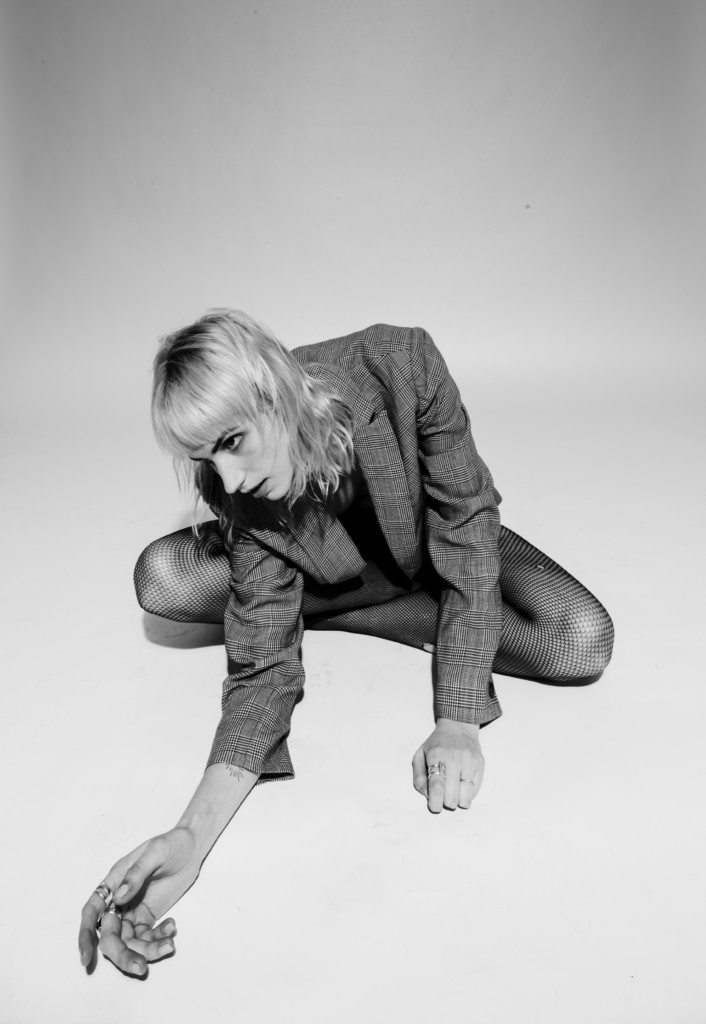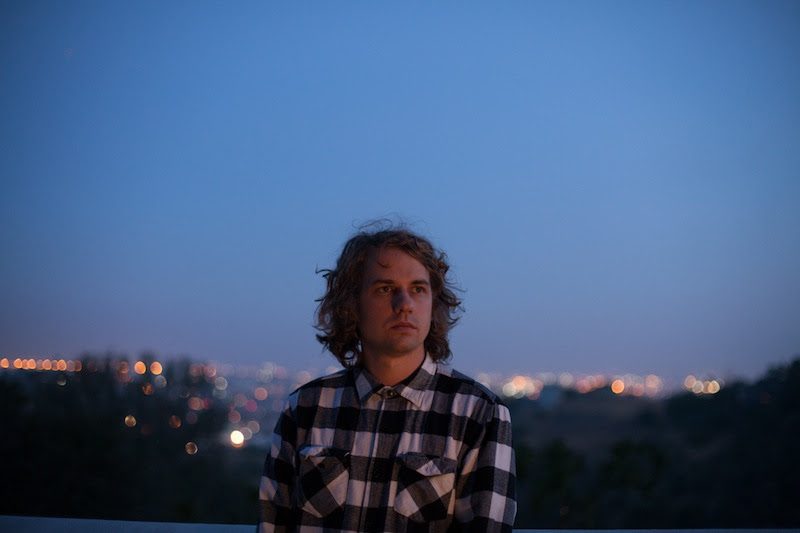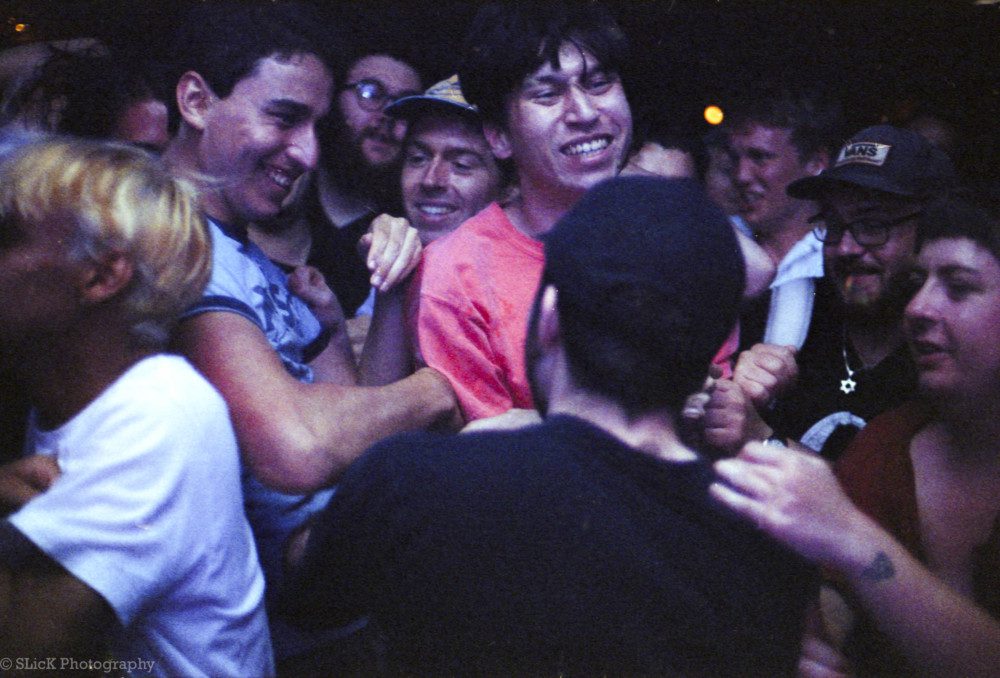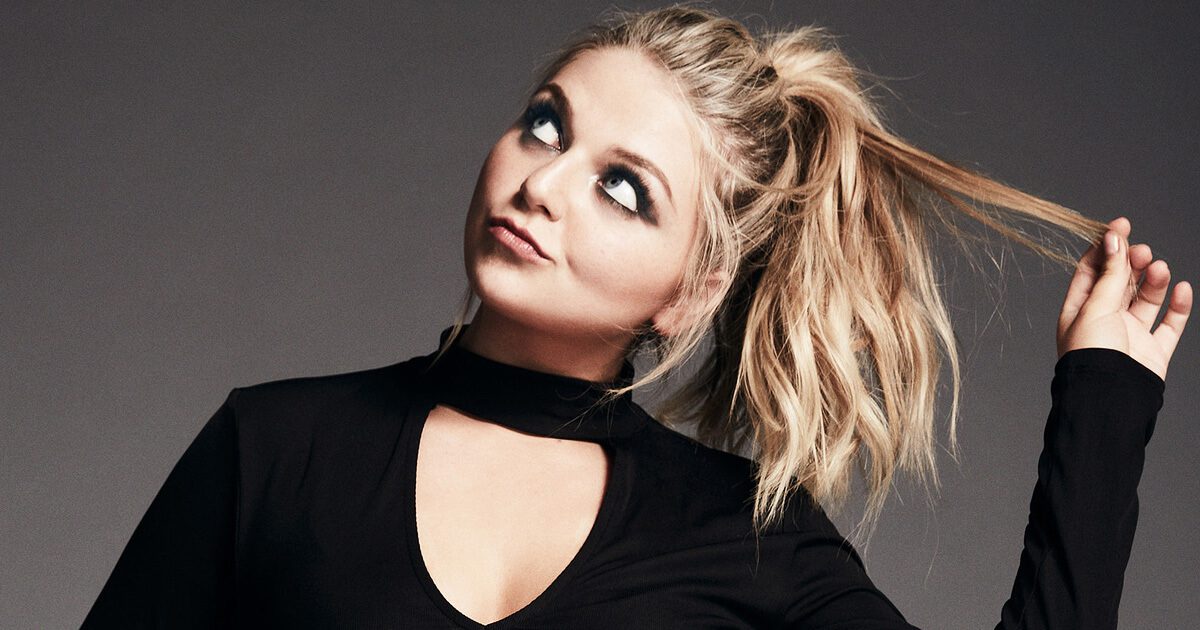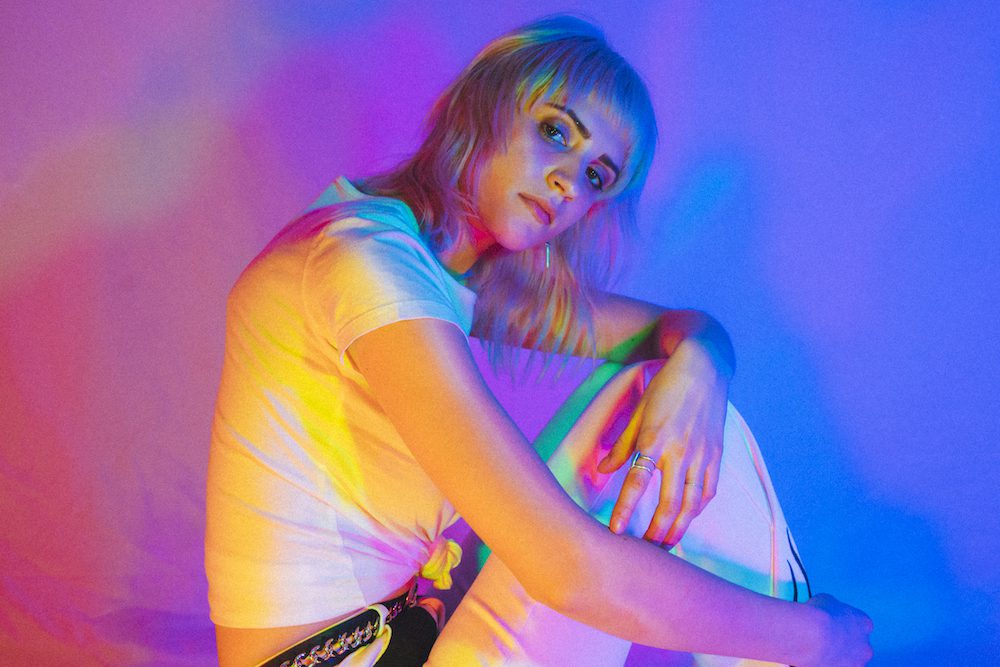

New Yorik-based Tanner Peterson is the cowgirl prom queen the LGBT music scene has been waiting to experience. A Tennessee transplant, she’s had a diverse and international upbringing, spanning from Switzerland to Chattanooga (a moderately liberal artistic college town). She’s a dynamic, authentic artist, with an uninhibited curiosity and self-aware demeanor. In a dream sequence – she’s the androgynous girl on the playground doing backflips in a neon unitard.
Shedding the skin of her prior moniker Baby Montana – her second EP as the fully formed and infectious “Tanners” explores love, lust, and longing through a glistening sound palette of ’80s nostalgia. Her most recent single “Fumes” is a slow-burning ballad that examines the raw first beginnings of love, tempered by doubts that the initial spark is not always enough to sustain the fire. I sat down with Tanners at Ludlow House to get to the bottom of her humble beginnings, and her musical journey thus far.
AF: How would you describe the origin of your musical journey?
TP: I first started playing the piano around seven years old. Mostly because my brother did and my parents encouraged it since it also helps with basic math and reading skills for kids, which I needed help with.
AF: What was your first band, or the first person you musically collaborated with?
TP: My brother Robbie was the first person I ever played music with. He convinced me to buy an electric bass when I was eight so that he’d have someone to play guitar with. We’d bring our dinky little amps out into the backyard and exclusively play “Brain Stew” (Green Day) and “Are You Gonna Be My Girl” (Jett). From there I started taking voice lessons and picked up drums and keyboard. We played in bands together until he left for college.
AF: How would you describe your childhood? Were there any specific events you felt shaped you during your teenage adolescence?
TP: Unique and full of wild adventures. Music, travel, and food tied my family together. I was born in Pittsburgh, moved to Austin shortly after, then to Switzerland, and then back to the states where we ended up in Memphis and then Chattanooga. Traveling and moving around so much at a young age gave me a lot of perspective and insight but the trade off was that nowhere really felt like home. My parents divorced while I was a sophomore in high school and my family as I knew it pretty much dissolved. I lost such an important, grounding aspect of my life as a teenager and I began consuming art and music more as an emotional outlet than entertainment.
AF: What was the transition back to The United States like?
TP: The last year or so of living in Switzerland, my brother and I started feeling like we were missing out on American “culture.” My brother wanted to play American football and I couldn’t live without easy access to quintessential American delicacies such as Cheetos. My parents tell me I was dead set on attending an all-American high school prom. We moved to Memphis in 2000 and it was such a drastic contrast to Zug. On top of the stress of moving 5,000 miles away, my brother underwent an intense hip surgery and I started experiencing panic attacks and acute anxiety. I was bullied in school, struggled academically, and misdiagnosed with various learning disabilities which took a blow to my self confidence. I ended up going to three different schools within the span on five years.
AF: Was there a highlight during this time?
TP: Going to all girls schools saved my life. We moved to Chattanooga, TN in 2005 and I started 6th grade at GPS (Girls Preparatory School). It was incredibly academically challenging for me. But, once I was properly diagnosed with a learning disability (severe ADD) and had my anxiety under control, I began to thrive. GPS was the first place I began to feel like myself.
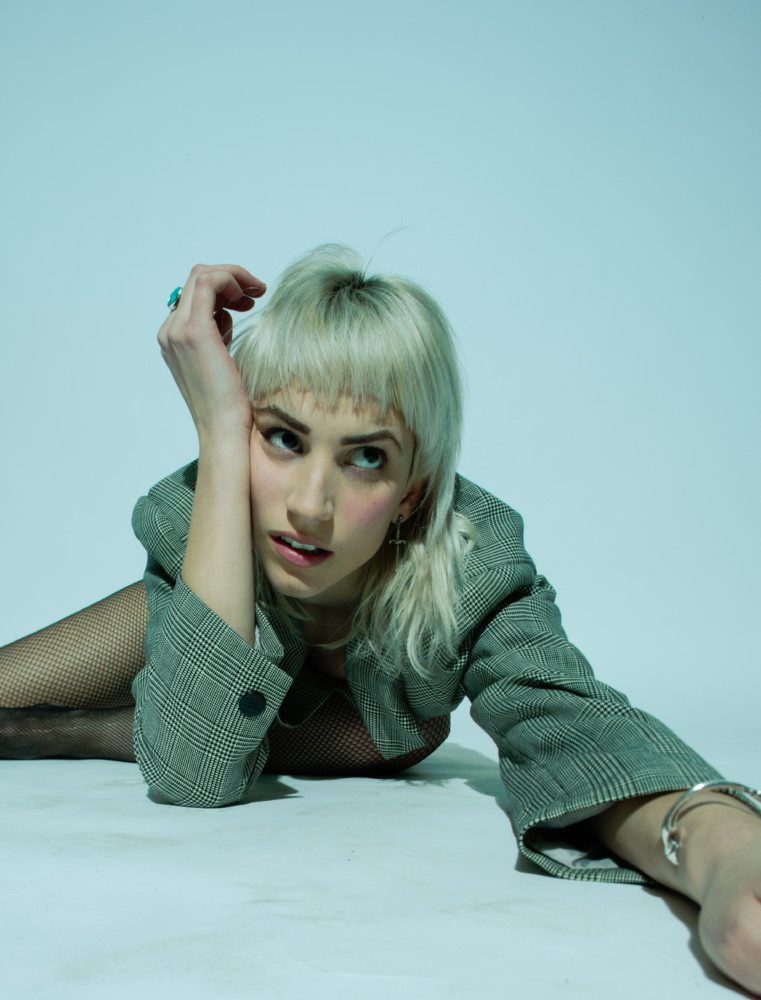
AF: You enrolled at NYU in a male dominated music tech program. Can you talk a bit about this?
TP: I don’t regret going through the program by any means but I did realize around sophomore year that it wasn’t the best fit for me. I wanted to study vocal performance but my parents were adamant that I get some sort of engineering degree. So the Music Technology program was a happy medium. My graduating class was about 18 and I was 1 of 4 women. Going into the program was a little intimidating especially after attending an all girls school for seven years. I was so hesitant to ask questions in class because I was afraid of looking stupid, which was a stark contrast to how I felt in high school. I really regret wasting those opportunities to learn but then again it taught me a (very expensive) lesson about the importance of asking questions. Even if it does make you feel silly or dumb!
The music industry, especially on the tech side, is such a boys club. I interned at studios and venues and my skills were often underestimated by my supervisors which then made me second guess myself. I was working at a studio in Nashville for two months the summer before junior year. A few days before the internship was over, I was finally invited to sit in on a session and the assistant engineer asked me what I was studying in school. When I told him I was in an audio engineering program he said something along the lines of, “Oh, I had no idea! Thought you were just doing this for fun…” As a woman in the industry, I’ve learned that you just have to assert and trust yourself and call people out when they’re being daft.
AF: When did you redirect to performing your own songs?
TP: For the first couple of years in college I convinced myself that I wanted to be a studio engineer because my brother was active in the field. I think I liked the idea of it more than actually doing it. I interned at a lot of studios and helped engineer sessions for my friends, but I never felt that spark. At NYU I surrounded myself with so many talented people who were heavily involved in creating and performing their own music. Looking back, I was scared to start writing songs because I felt so behind in comparison. Around junior year I finally decided to record some of my own songs because I was more afraid that I’d regret not giving it a go.
AF: Can we talk about the inception of Tanners?
TP: Tanners was birthed from an identity crisis! I had just released an EP for my first project called Baby Montana which ended up connecting me to my first manager. While I was recording and producing Moons EP I had such a difficult time conceptualizing what I wanted to sound like as an artist. Those songs will always be special to me but I knew at the time it wasn’t exactly in line with what I envisioned in my head. My manager started putting me in co-writing sessions and encouraged me to figure out how to verbalize what I wanted while working alongside other producers. He also hated the name Baby Montana and urged me to change it.
The artist name Tanner was already taken so I had no idea what to call myself. Long story short, I met some Aussie friends while traveling in SE Asia and hadn’t noticed until the end of the trip that they kept calling me/thought my name was Tanners. Thanks my sweet Aussie dudes!
AF: Have you felt you’ve had any setbacks? What would your advice be for young girls just starting out on professional music projects?
TP: I think I’ve set myself back in many ways through self-sabotaging. I was afraid to ask questions at the risk of being embarrassed, and avoided moments of vulnerability for the same reason. I’ve compared myself and my journey to my peers. Most of all I’ve struggled with the fear of what could happen if I actually believed in myself. What if I give it my all, and I fail and everyone laughs at me?! It’s taken years and I’m still working on it, but whenever those voices start to get too loud, I try to kindly tell them, “thank you for your input! Bye now!”
Words of advice…
- FAKE IT TILL YOU MAKE IT ! People gravitate towards those who emit self confidence and will most likely believe you know what you’re doing even if you have no idea!
- RISK IT FOR THE BISCUIT!
- ASK QUESTIONS!
AF: Who are your current musical collaborators?
TP: Been working with a bunch of new people over the past few months, but lately I’ve been writing most recently with Myles Avery, Dominic Florio, and my two long-term collaborators Mike MacAllister and Julie Hardy.
AF: What elements of your music tech background do you bring into your creative process?
TP: Producing music from an engineering perspective allows me to create sounds as well as problem solve in a very concrete, linear way. I’m a visual learner, so having an engineering background helps me make sense of the overwhelmingly abstract nature of making music. Also having the technical jargon needed to communicate clearly with my collaborators has been helpful in shaping and solidifying my sound.
AF: What’s your primary instrument for writing currently?
TP: Piano. When I write alone I tend to get distracted with synths and plugins, etc so I’ve found that limiting myself helps keep me on track.
AF: Who are your visual and sonic influences and why?
TP: Fashion and fashion photography is a huge source of visual inspiration for me. Bright colors. Texture. Looking through my saved instagram posts, there’s quite a mixture of graphic and visual artists, models, photographers, and brands… Big hitters are definitely Neil Krug, Violet Chachki and Aquaria, The Blonds, Jennifer Medina, Robert Beatty, Nadia Lee Cohen, Maya Margarita, and Franz Szony.
Nowadays artists have so many platforms to showcase their work via social media and it’s become increasingly important for musicians to have visual content accompanying their work. I’m inspired by artists who are able to create a visual aesthetic that exudes the sound and feel of their music. As if they are one and the same. I think the people who pull this off best are Tame Impala (duh), Sateen, Kacey Musgraves, Dorian Electra, Lizzo, Rosalia, Dani Miller (Surfbort), and Kali Uchis.
AF: What has been on your song rotation?
TP: “Strut” by Sheena Easton!
